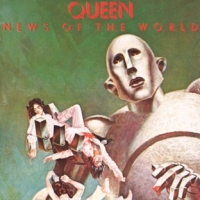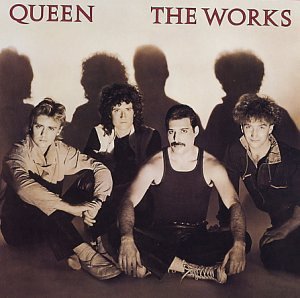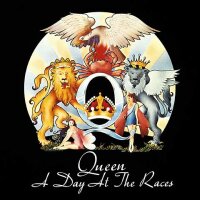12-28-1977 – News of the World – Washington Post
Queen: Less Flamboyance, More of the Beatles
Queen’s sixth album, “News of the World,” reveals another facet of the group’s musical identity. This album represents a departure from the usual Queen flamboyance and dynamism of musical effects which sustained, for example, “A Night at the Opera” or “Sheer Heart Attack.” Less flamboyance, less implicit drama, less operatic overtones characterize this album; more understatement (with one monumental exception – “Get Down, Make Love”), more experimentation in the range between hard and soft rock, more intelligence and moderation of conception.
The originality of Queen has tended over the years to reside more in their studio effects: their arty over-dubbing, their multi-layered harmonics, their many-faceted range of technological effects, rather than in their melodies or lyrics. And this presents a real problem in eveluating their contribution to rock.
Queen has been compared to a variety of bands from Led Zepplin to The Beatles, including such groups as The Who, Yes 10 c.c. and the Kinks. Artists have always absorbed the best that is around them and incorporated themes, riffs, musical structures into their own styles. Nothing plagiaristic about that. Nothing shameful about being influenced. But the question is, is Queen a group of mere derivative imitators in the guise of originators, or have the members of Queen been good at synthesizing, and are they able to blend the sounds of the ’60s and ’70s into an amalgam that bears, in relief, their own stamp?
An unavoidable impression after listening to “News of the World” is the influence of the Beatles, especially their “White Album,” on the collective unconscious of Queen. “All Dead, All Dead” is a wistful, melancholy song about haunting memories delivered in a Paul McCartney-like vocal style by Brian May. The whole first section of “Spread Your Wings” sounds like the identical twin of “Rocky Racoon,” albeit in a different key with slight melodic changes. “Sheer Heart Attack” begins, “Well you’re just 17 . . ./ and this time it is the lyrics which seem uncomfortably close to the Beatles’ “I Saw Her Standing There.”
Because of Queen’s liberal absorption of musical styles and themes over the last 10 years, it is difficult to pinpoint what individualizes their personal style. But if we can isolate their most distinguishing characteristic, it is a heavy metal bass line – heavy on guitar and drums – which both support and play against a multi-voiced melodic line. A case in point is the first cut of the album, “We Will Rock You,” which has a marvelously primitive, ritualistic, tribal quality to it.
The loud throbbing beat with its Dianysian overtones, the insistent claping, the ostinato bass which enters as the only melodic acompaniment late in the song, all build repetitively, setting up rhythmic circuits charged with energy. That energy is further underscored by the challenging, hostile, rebellious lyrics: “Buddy you’re a young man, hard man/Shoutin’ in the street gonna take on the world some day/You got blood on yo’face/You big disgrace/Wavin’ your banner all over the place.”
“It’s Late,” a plaintive rock song in typical Queen style about a failed relationship, is less successful than “We Will Rock You,” though it is still likeable. It is flawed by the instrumental break and high-powered instrumental ending, both of which go off on a drum and guitar bonanza, interrupting the otherwise neat structure and undercutting the melodic poignancy. And this seems to be a major problem with Queen: They don’t know when to end a song, they frequently succumb to excess in effects, and they tend to supply their songs with instrumental breaks that have little to do with anything.
Still, “We Will Rock You” is a song that both reflects and helpsof the criteria applicable to the best in rock music: energy, communal reveling, insistent percussion, celebrative rebelliousness against any norm. And, fortunately, there are additional rays of intelligence, talent and craft throughout the album.




